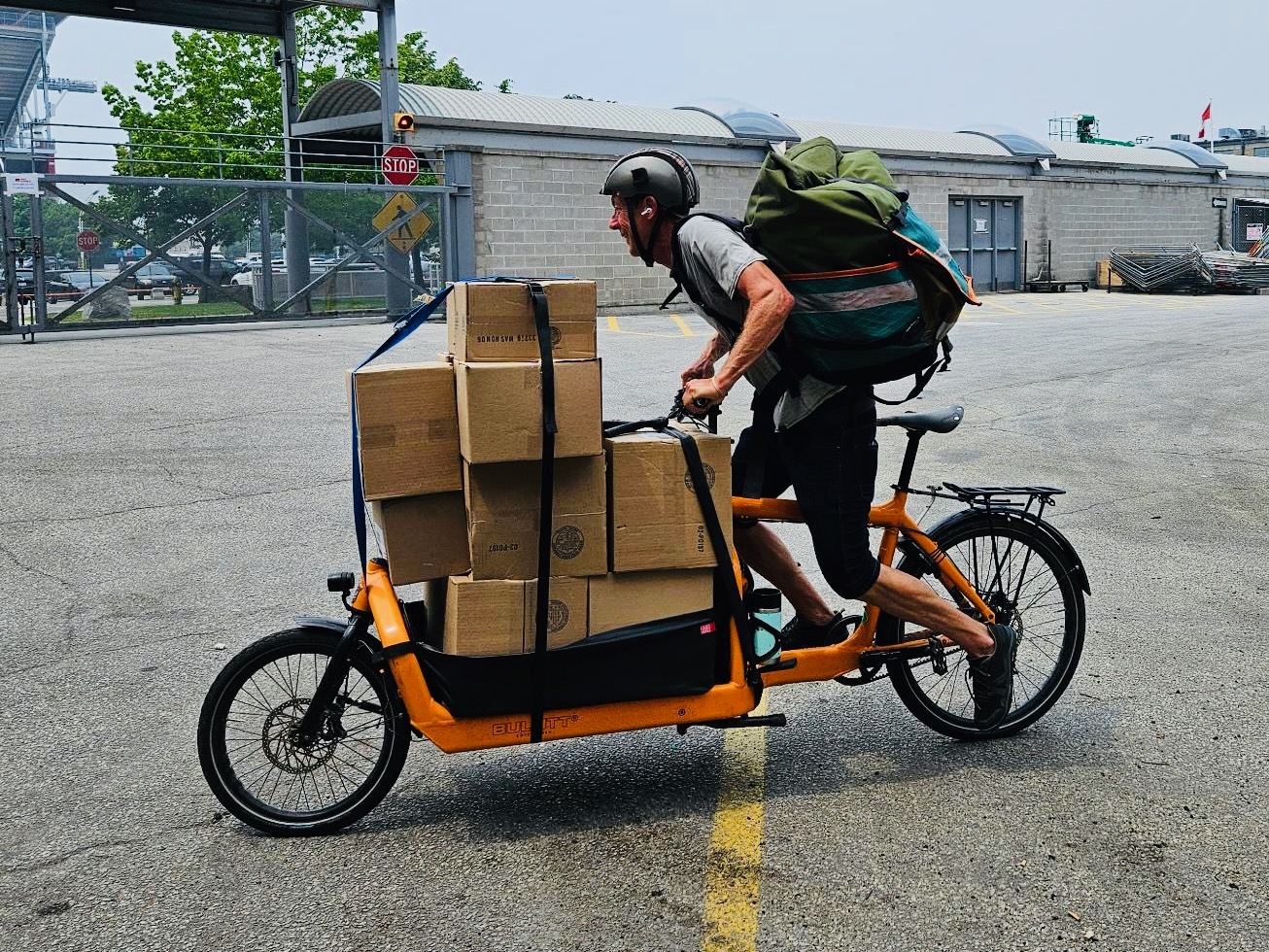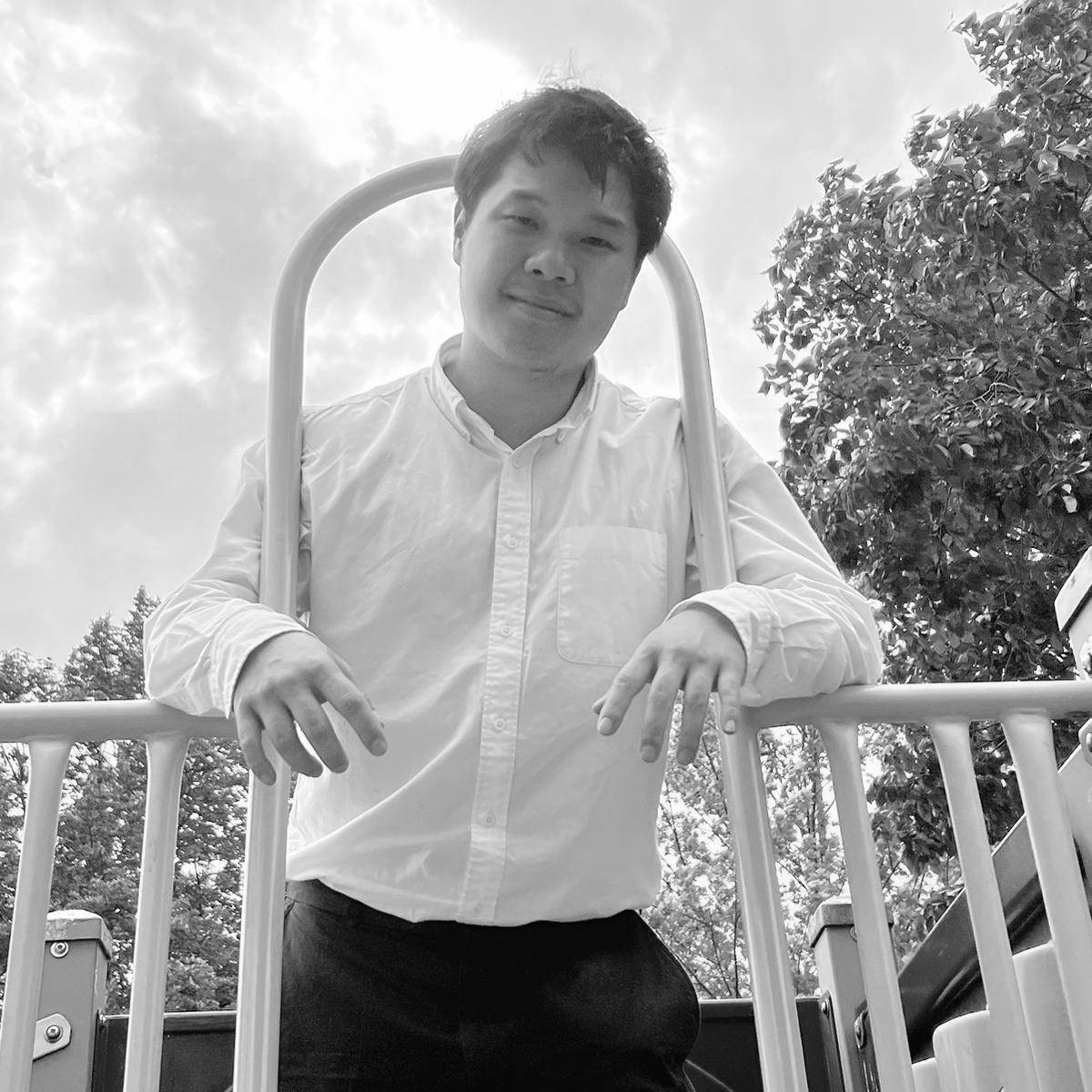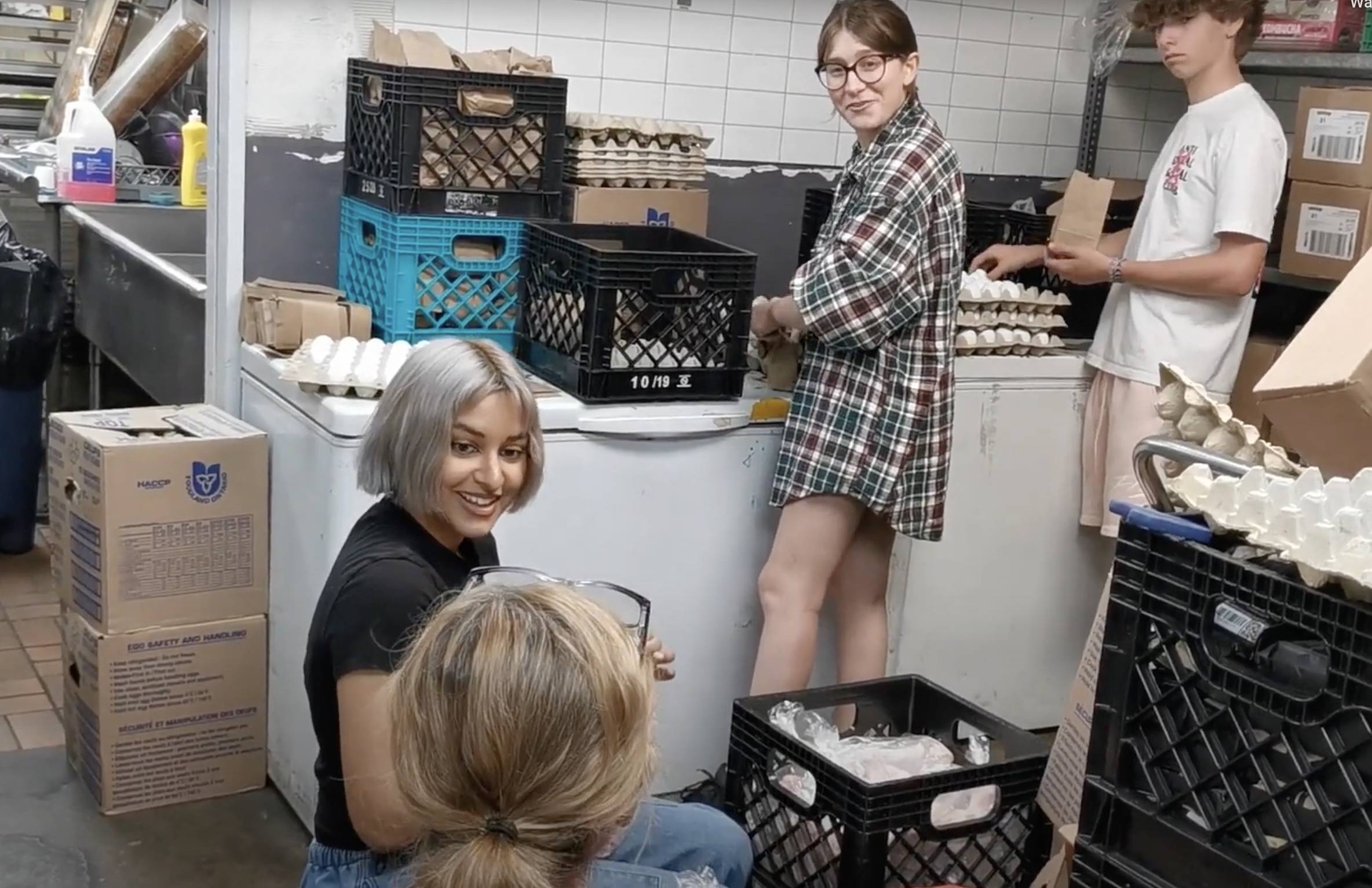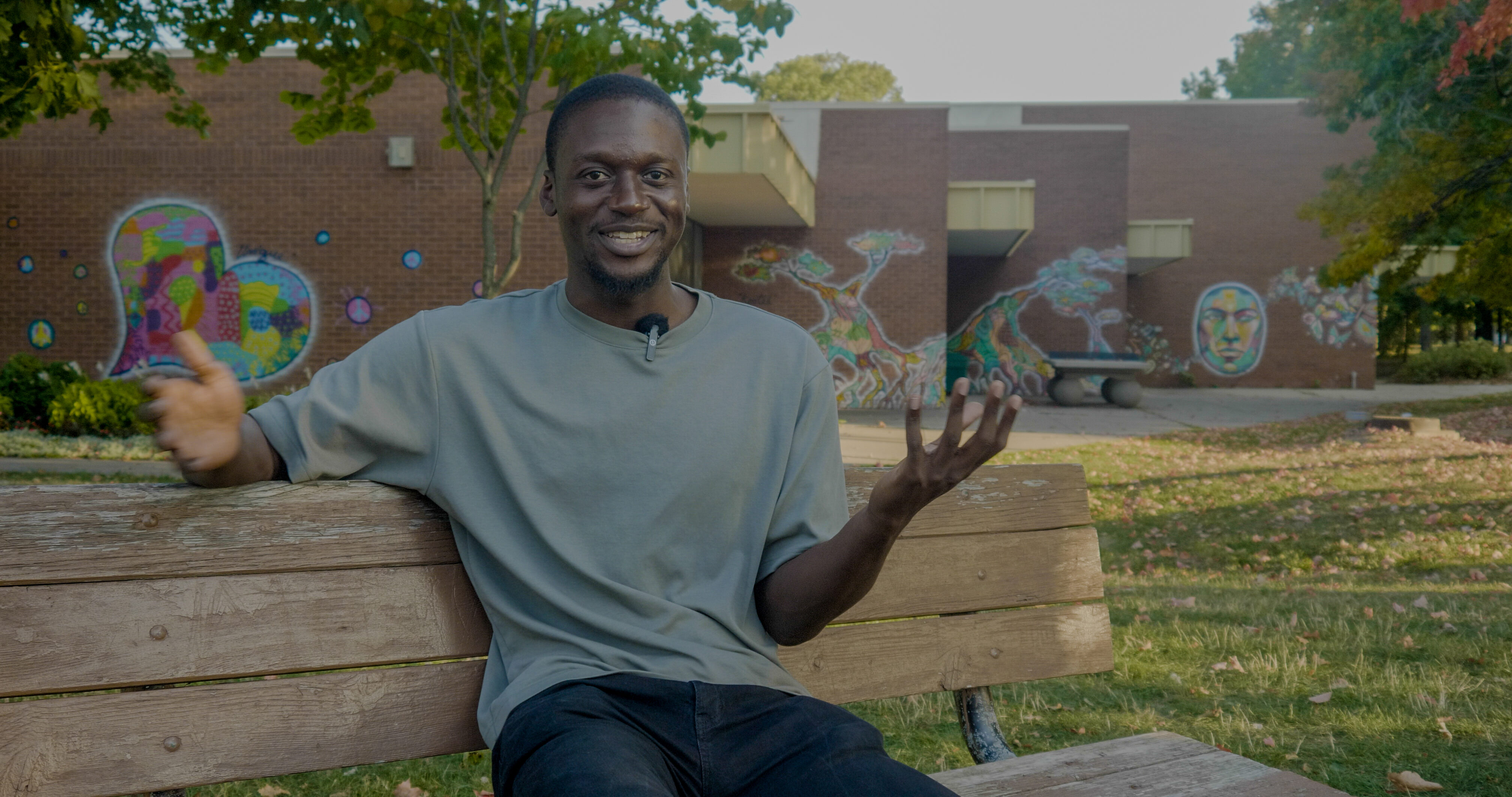THE GREEN LINE'S
CHANGEMAKER INTERVIEW
How The Bike Brigade's Chad Mohr fights for better food access for Torontonians
Chad Mohr of the Bike Brigade talks about how the grassroots organization has mobilized more than 1,000 volunteer cyclists to deliver food and other essentials to those in need across Toronto.

Volunteer cyclist Chad Mohr with The Bike Brigade delivering food and essentials to vulnerable Torontonians.


SEBASTIAN TANSIL
Caring mastermind based in Kensington-Chinatown who loves spending quality time with friends and family. Empathetic and precise economist by training. Loves amber yellow as it reminds him of people dearest to him.

Mary Newman
British-Canadian journalist with a decade’s experience producing for the BBC and CBC. Hails from Robin Hood country so naturally hates wealth inequality and loves organized labour. Now resides in the dog paradise of Roncesvalles.
Sept. 12, 2025
This interview is part of Documenters Canada, which is partly funded by the Social Sciences and Humanities Research Council of Canada (SSHRC). Learn more about our program here. The Green Line maintains full editorial independence to ensure journalistic integrity.
Food banks across Toronto have been essential to help a growing number of residents navigate the cost-of-living crisis.
From April 2023 to March 2024, Toronto food banks served a record-breaking 3.49 million client visits. But what happens if you can't make it to their locations in person?
The organization Bike Brigade works with food banks by mobilizing volunteer cyclists across the city to deliver groceries, meals and other essentials, such as pet food and even electronics, to people’s homes.
For our September 2025 Changemaker interview, we spoke with volunteer Chad Mohr about the group’s work and impact.
Can you talk about how you got involved with the Bike Brigade?
The Bike Brigade started at the very beginning of the pandemic. And I started doing deliveries on a bicycle for Parkdale Community Food Bank on my own. My partner was doing it in a car, and she said, "Hey, you should see if you could do this on a bike." And I said, "Oh, what a good idea" because I'm a pretty enthusiastic cyclist. And one day, I showed up at Parkdale Community Food Bank picking up my deliveries, and there were all these other cyclists there. And I was like, "Well, this is weird," because I thought I was the only one doing this on a bike, and it turns out these other people were Bike Brigade volunteers.
That's when I became aware of the Bike Brigade, and I thought, "Oh, well, that sounds right up my alley." So I went and I signed up. Bike Brigade was kind of a perfect merging for me of community involvement and my favorite hobby, which is cycling.
How has The Bike Brigade evolved over the years?
I think at the very beginning, Bike Brigade was trying to figure out where it could be most helpful.
So I think there was a little bit of experimenting with different models and providing slightly different sorts of services. And then it ended up just becoming a partner for existing organizations that had things to get out to folks who weren't able to pick them up themselves due to the pandemic. That ended up being primarily food from food banks.
At the beginning, it was very challenging because, at that time, it was all kind of a manual process. It was like Google Spreadsheets and Facebook and texts from people's personal phones. Five years on, we’ve custom-built dedicated dispatch software that makes organizing the deliveries and volunteers super easy.
What do you think is missing from the city or province's own efforts to address food insecurity?
A big contributing factor to food insecurity is poverty, and I think all levels of government could be doing a better job of addressing this. Here in Toronto, for example, we have a major housing crisis, paired with a general affordability crisis.
Existing financial support and social benefit programs are insufficient in the best of circumstances, and at times like these, are completely inadequate. A lot of people are having a very tough time out there and governments are not doing what’s needed.
How do you feel about the fact that the Bike Brigade is filling the void of what some people may see as a very essential public service?
I think that most people involved in the food bank system, including the people that run the food banks and even the Bike Brigade’s volunteers recognize that, actually, food banks are just a band-aid. It’s a broken system. Food banks are not solving hunger. They're not solving poverty. They're not solving food insecurity. It's a stopgap measure. It's helping people get through a day or a week or a year or whatever, but it's not actually changing any systems, which is what really needs to happen.
Aside from food deliveries, what are some ways you've been involved in advocacy or policy change?
I’m a graphic designer and web developer for nonprofits and organizations committed to improving the world through policy change initiatives.
I also attend protests and write to officials to address issues such as workers rights, health equity, housing and poverty.
What has this experience taught you?
I’ve been back and forth across this city, in all kinds of places that I probably would not have been otherwise. I have spent an inordinate amount of time inside of Toronto Community Housing apartment buildings. I wish I had nice things to say about those places but I don’t. I'm a little bit shocked at how poorly many of them are maintained. It's terrible in some cases, super disappointing.
I’ve met and interacted with lots of individuals and have a tremendous amount of respect for their ability to survive, despite odds being stacked against them.
I've always understood, maybe mostly on an academic level or from a distance, that poverty exists. You know people struggle and that there are systems that are working against people. But to actually see it and so frequently, it's a real eye-opener about the reality of the City of Toronto, the reality of the state of the world, the reality of capitalism, the reality of poverty. It's unbelievable and it's everywhere.
So I appreciate the opportunity to see that and, even if it's just a little thing, to work against that in some way.
How can people support this work?
If it sounds interesting to anybody, sign up at bikebrigade.ca and have a go. It's super fun and we're always looking for new folks.
This interview was edited and condensed for clarity.

Volunteers at the Fort York Food Bank.

Our Documenter's local perspective
Last summer, as part of The Green Line’s Alexandra Park Youth Journalism program, our Documenter Sebastian Tansil reported on the Fort York Food Bank (FYFB), after which he started volunteering with the organization. That marked a shift in his work — going from observer to participant — and helped shape his interest in food access in the early days as a Documenter.
At FYFB, he started to notice patterns in who was accessing the food bank at different times of the year. As Documenter Taylor Simsovic wrote in her coverage of a City Executive Committee meeting about student nutrition, with school out and student nutrition programs paused in the summer, many families turned to food banks for the meals schools could no longer provide.
At the same time, Tansil helped Documenter Eugene Slonimerov report on a TTC board meeting on growing accessibility concerns around the TTC’s Wheel-Trans system. At a the meeting, lawyer Gabriel Reznick argued that the city’s new cost-saving Family of Services model which forced some residents to rely on regular transit services “failed to meet human rights legislation and made getting around less accessible.” One FYFB client told Simsovic they sometimes “wait up to two hours for the next available Wheel-Trans bus after picking up their groceries.”
With both issues — food access and mobility — emerging at public meetings and on the ground, one question kept surfacing: How are our most vulnerable neighbours, particularly those living with disabilities, supposed to access basic needs like food when both transportation and nutrition systems are under strain? This question led Tansil to the Bike Brigade.
Fact-Check Yourself
Sources and
further reading
Don't take our word for it —
check our sources for yourself.
Care about our city, but don't know how to make it better? Sign up for simple, step-by-step guides to solving problems in your neighbourhood — one small action at a time.
